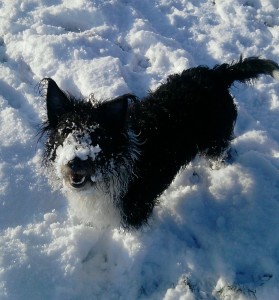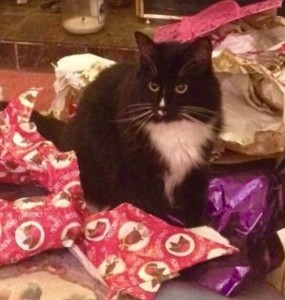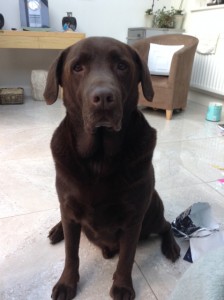 Henry is a beautiful, friendly, 8 year old Labrador retriever. He visited Hollybank in October as he had suddenly become lethargic and completely lost his appetite-completely unusual for a Chocolate Labrador!
Henry is a beautiful, friendly, 8 year old Labrador retriever. He visited Hollybank in October as he had suddenly become lethargic and completely lost his appetite-completely unusual for a Chocolate Labrador!
He had quickly become dehydrated and had abdominal pain on examination. We were concerned Henry could have a blockage in his gastrointestinal tract as he was known to have eaten a piece of carpet a few days previously! Sure enough, an abdominal scan showed abnormal material to be present in Henry’s stomach and small intestine. He would need to undergo surgery to remove this foreign material.
Unusually, however, Henry’s blood tests also showed extremely high calcium levels that could not be explained by eating carpet. From the blood and urine tests, we could tell the high calcium levels were affecting Henry’s kidney function too. This was worrying because such damage does not always respond to treatment and can be permanent. It was therefore very important that we find the source of the high calcium levels. Strong possibilities for what this could be included certain types of cancers so this was a very worrying time for everyone, especially for Henry’s devoted owners.
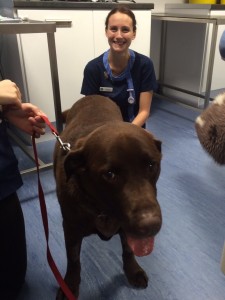 Whist the abdominal scan showed no other abnormalities, a scan of his neck revealed the cause of Henry’s calcium elevation. In the neck, there are small glands called parathyroids whose function is to strictly regulate calcium levels in the blood. The scan showed Henry had a nodule in one of his parathyroids which was almost certainly the root of his problem. The only way to treat this nodule was to surgically remove it. This is a difficult and high risk area on which to operate so a specialist surgeon was asked to come to Hollybank to carry out the surgery. Of course, Henry had to fully recover from his carpet removal surgery first!
Whist the abdominal scan showed no other abnormalities, a scan of his neck revealed the cause of Henry’s calcium elevation. In the neck, there are small glands called parathyroids whose function is to strictly regulate calcium levels in the blood. The scan showed Henry had a nodule in one of his parathyroids which was almost certainly the root of his problem. The only way to treat this nodule was to surgically remove it. This is a difficult and high risk area on which to operate so a specialist surgeon was asked to come to Hollybank to carry out the surgery. Of course, Henry had to fully recover from his carpet removal surgery first!
At the time of his surgery for nodule removal, Henry was still barely eating so a feeding tube was placed surgically. This allowed the nurses to syringe liquidised food directly into Henry’s oesophagus so he could receive some nutrition. The nurses worked extremely hard to ensure Henry did not inhale any of the liquidised food as this is always a risk in weak, debilitated patients. They also continued offering Henry tasty foods to tempt him and whet his appetite.
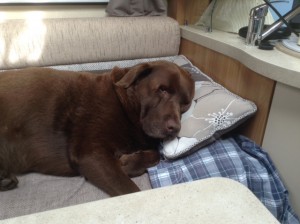 Unfortunately for Henry, this was not the end of his story. Despite frequent changes of the dressing surrounding his various drip lines and feeding tube, and probably due to his underlying disease process, Henry developed a number of infections whilst in hospital. The feeding tube had to be removed sooner than we would have liked for this reason.
Unfortunately for Henry, this was not the end of his story. Despite frequent changes of the dressing surrounding his various drip lines and feeding tube, and probably due to his underlying disease process, Henry developed a number of infections whilst in hospital. The feeding tube had to be removed sooner than we would have liked for this reason.
Thankfully, once we were able to remove all the lines and tubes, Henry began responding to antibiotic therapy. He went home to spend time with his adoring mum and dad and his appetite slowly returned to normal. Henry’s calcium levels reduced following surgery and with the support of specific medications to help stabilise his calcium levels. His kidneys are continuing to make good progress and Henry is now his normal, happy and active self.
Henry was a wonderful patient and everyone at Hollybank grew very attached to him. We are delighted he has made such a good recovery and is enjoying being back at home with his family!
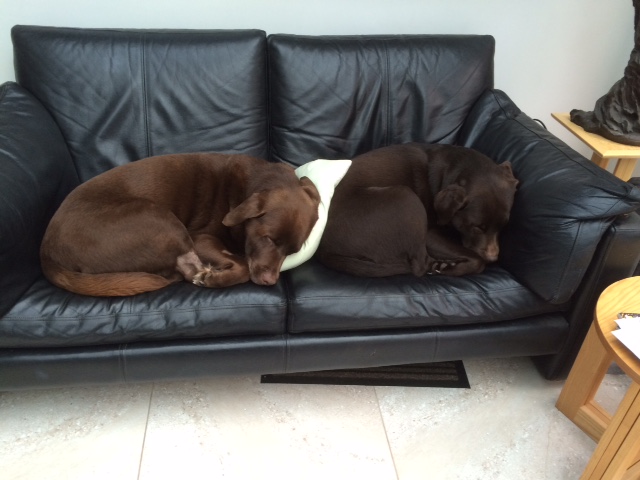
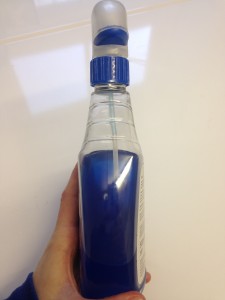 With a few months of cold winter weather ahead some of us may have thought about antifreeze and de-icer for our cars. Along with screen washes, these products commonly contain a chemical called ‘ethylene glycol’.
With a few months of cold winter weather ahead some of us may have thought about antifreeze and de-icer for our cars. Along with screen washes, these products commonly contain a chemical called ‘ethylene glycol’.





